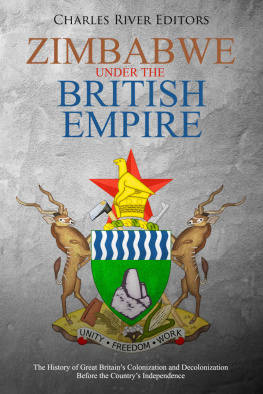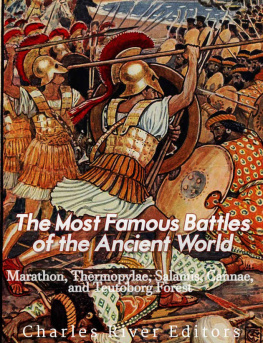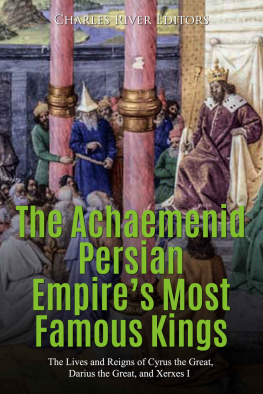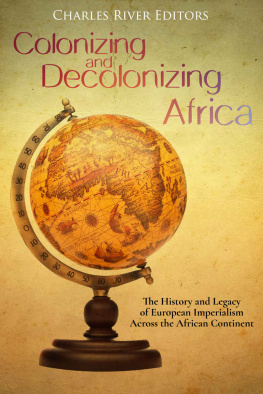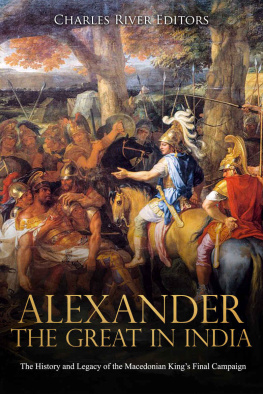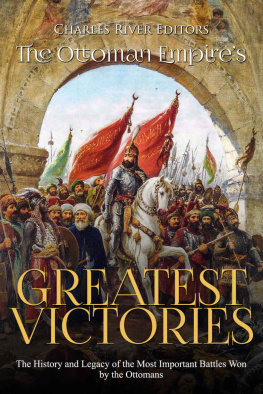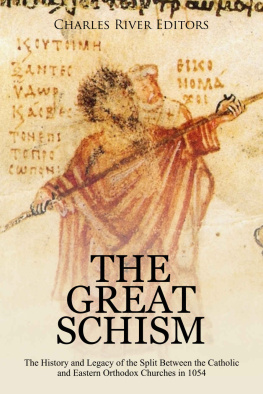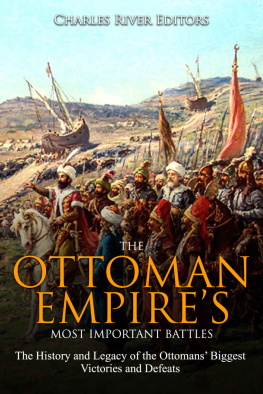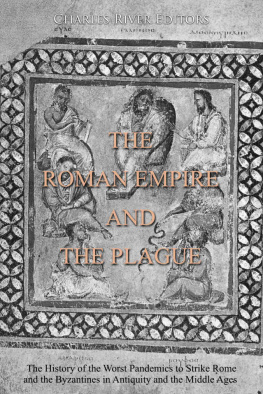Charles River Editors - Zimbabwe Under the British Empire: The History of Great Britain’s Colonization and Decolonization Before the Country’s Independence
Here you can read online Charles River Editors - Zimbabwe Under the British Empire: The History of Great Britain’s Colonization and Decolonization Before the Country’s Independence full text of the book (entire story) in english for free. Download pdf and epub, get meaning, cover and reviews about this ebook. year: 2020, publisher: Charles River Editors, genre: Romance novel. Description of the work, (preface) as well as reviews are available. Best literature library LitArk.com created for fans of good reading and offers a wide selection of genres:
Romance novel
Science fiction
Adventure
Detective
Science
History
Home and family
Prose
Art
Politics
Computer
Non-fiction
Religion
Business
Children
Humor
Choose a favorite category and find really read worthwhile books. Enjoy immersion in the world of imagination, feel the emotions of the characters or learn something new for yourself, make an fascinating discovery.
- Book:Zimbabwe Under the British Empire: The History of Great Britain’s Colonization and Decolonization Before the Country’s Independence
- Author:
- Publisher:Charles River Editors
- Genre:
- Year:2020
- Rating:3 / 5
- Favourites:Add to favourites
- Your mark:
- 60
- 1
- 2
- 3
- 4
- 5
Zimbabwe Under the British Empire: The History of Great Britain’s Colonization and Decolonization Before the Country’s Independence: summary, description and annotation
We offer to read an annotation, description, summary or preface (depends on what the author of the book "Zimbabwe Under the British Empire: The History of Great Britain’s Colonization and Decolonization Before the Country’s Independence" wrote himself). If you haven't found the necessary information about the book — write in the comments, we will try to find it.
Charles River Editors: author's other books
Who wrote Zimbabwe Under the British Empire: The History of Great Britain’s Colonization and Decolonization Before the Country’s Independence? Find out the surname, the name of the author of the book and a list of all author's works by series.
Zimbabwe Under the British Empire: The History of Great Britain’s Colonization and Decolonization Before the Country’s Independence — read online for free the complete book (whole text) full work
Below is the text of the book, divided by pages. System saving the place of the last page read, allows you to conveniently read the book "Zimbabwe Under the British Empire: The History of Great Britain’s Colonization and Decolonization Before the Country’s Independence" online for free, without having to search again every time where you left off. Put a bookmark, and you can go to the page where you finished reading at any time.
Font size:
Interval:
Bookmark:
By Charles River Editors
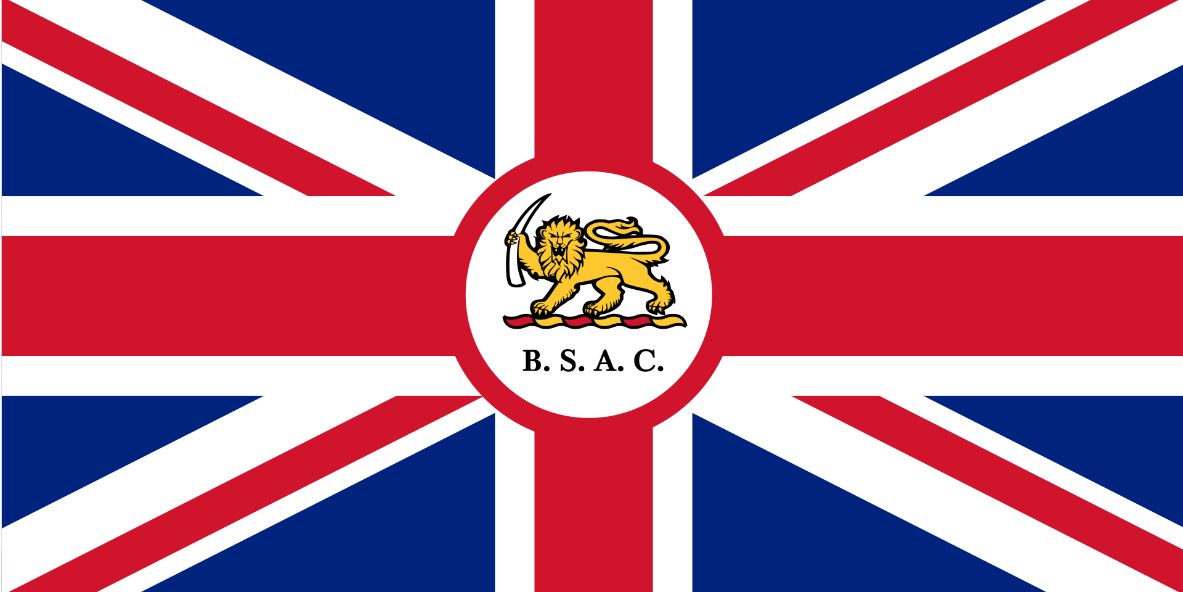
The British South Africa Companys flag

Charles River Editors is a boutique digital publishing company, specializing in bringing history back to life with educational and engaging books on a wide range of topics. Keep up to date with our new and free offerings with this 5 second sign up on our weekly mailing list , and visit Our Kindle Author Page to see other recently published Kindle titles.
We make these books for you and always want to know our readers opinions, so we encourage you to leave reviews and look forward to publishing new and exciting titles each week.
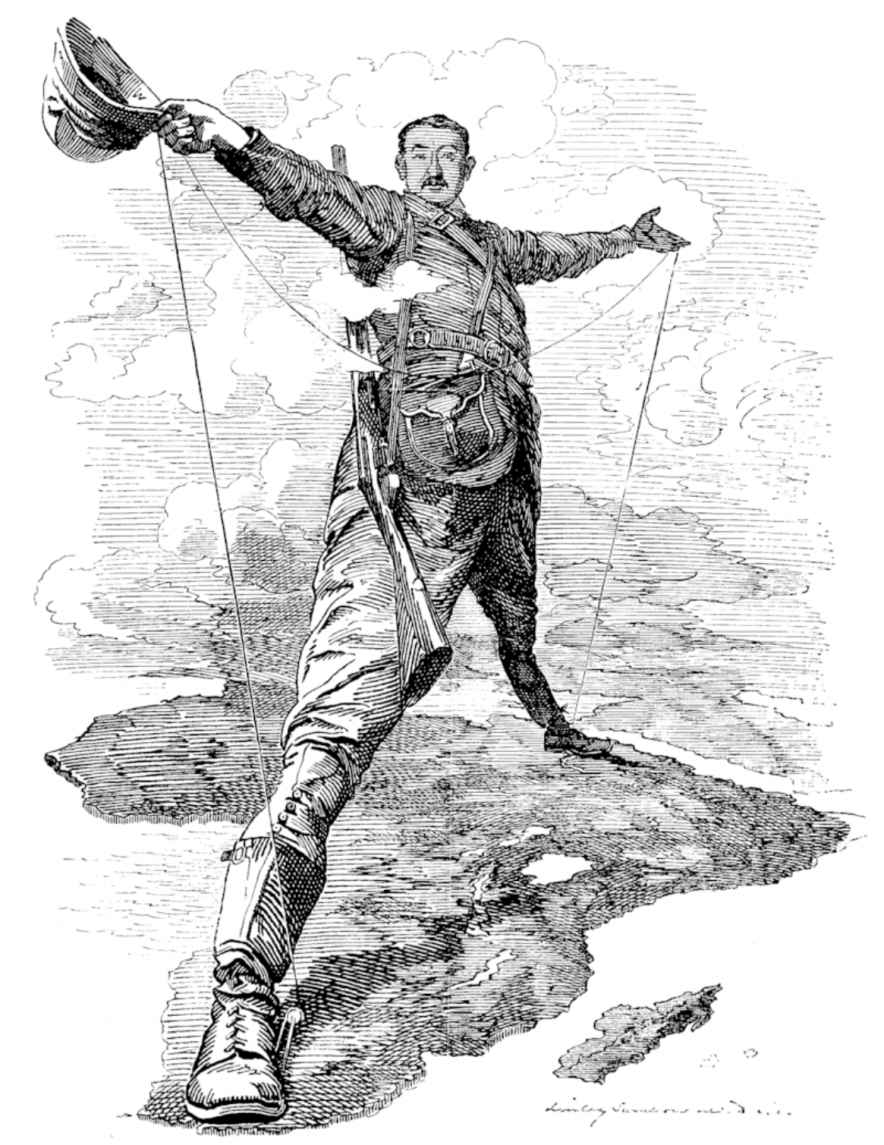
The Rhodes Colossus Striding from Cape Town to Cairo , a cartoon that appeared in Punch on December 10, 1892
The British South-African Company's shares
May be at a discount(Trade-martyrs!trade-martyrs!)
But he, our Colossus, strides on, he declares,
Whether with or without chums or chartersor charters.
Hooray! We brave Britons are right now to the front
Provided we've someone to boss usto boss us;
And Scuttlers will have their work cut out to shunt
This stalwart, far-striding ColossusColossus! Excerpt from an editorial in Punch, December 10, 1892
The modern history of Africa was, until very recently, written on behalf of the indigenous races by the white man, who had forcefully entered the continent during a particularly hubristic and dynamic phase of European history. In 1884, Prince Otto von Bismark, the German chancellor, brought the plenipotentiaries of all major powers of Europe together, to deal with Africa's colonization in such a manner as to avoid provocation of war. This eventknown as the Berlin Conference of 1884-1885galvanized a phenomenon that came to be known as the Scramble for Africa. The conference established two fundamental rules for European seizure of Africa. The first of these was that no recognition of annexation would granted without evidence of a practical occupation, and the second, that a practical occupation would be deemed unlawful without a formal appeal for protection made on behalf of a territory by its leader, a plea that must be committed to paper in the form of a legal treaty.
This began a rush, spearheaded mainly by European commercial interests in the form of Chartered Companies, to penetrate the African interior and woo its leadership with guns, trinkets and alcohol, and having thus obtained their marks or seals upon spurious treaties, begin establishing boundaries of future European African colonies. The ease with which this was achieved was due to the fact that, at that point, traditional African leadership was disunited, and the people had just staggered back from centuries of concussion inflicted by the slave trade. Thus, to usurp authority, to intimidate an already broken society, and to play one leader against the other was a diplomatic task so childishly simple, the matter was wrapped up, for the most part, in less than a decade.
There were some exceptions to this, however, the most notable of which was perhaps the Zulu Nation, a centralized monarchy of enormous military prowess that required a British colonial war, the storied Anglo-Zulu War of 1879, to affect pacification. Another was the amaNdebele, an offshoot of the Zulu, established as early as the 1830s in the southeastern quarter of what would become Rhodesia, and later still Zimbabwe, in the future. Both were powerful, centralized monarchies, fortified by an organized and aggressive professional army, subdivided into regiments, and owing fanatical loyalty to the crown. The Zulu were not dealt with by treaty, and their history is perhaps the subject of another episode of this series, but the amaNdebele were, and early European treaty and concession gatherers were required to tread with great caution as they entered their lands. It would be a long time before the inevitable course of history forced the amaNdebele to submit to European domination. Although treaties and British gunboat diplomacy played a role, it was ultimately war, conquest, and defeat in battle that brought the amaNdebele to heel.
Despite this, the amaNdebele, notwithstanding their eventual military defeat, commanded enormous respect from the British. This was also true with the Zulu. The British were a martial nation themselves, and they saw the concept of the "Noble Savage" as the romance of a bygone age, offering up the esteem due to a ruling aristocracy, according to the rules of chivalry. With the defeat of the amaNdebele in 1893 in a war that has come to be known as the Matabele War, agents of the British South Africa Company, as they assumed full administrative control of the territory, also established a rule of lionizing the amaNdebele. It became fashionable to mythologize the amaNdebele's noble origins, their courage and virtuosity in battle, and their incorruptible adherence to the Spartan code of war.
As various European interests tried to reach economic-based deals with the tribes King Lobengula in Matabeleland, others considered how to actually physically seize it. Lobengula and his army may not be capable of deflecting the might of the British Empire, but they certainly retained the potential to fight. Rumors of gold in the land helped lead to Cecil John Rhodes obtaining a royal charter in October 1889 for a private company to exploit the resources. After tricking the amaNdebele with a dubious agreement, members of Rhodes company began to establish a fledgling colony, and after the British defeated the amaNdebele and began driving them away from the land during the First Matabele War, the seeds were sown for two colonies to take root. But little did the British know just how politically turbulent those efforts would be, and how much more fighting would have to take place to consolidate their position.
Zimbabwe under the British Empire: The History of Great Britains Colonization and Decolonization Before the Countrys Independence chronicles the conflicts that marked Britains efforts to establish colonies in the region, what politics and social life were like there, and the dramatic independence movements that spurred decolonization. Along with pictures depicting important people, places, and events, you will learn about Zimbabwe under the British Empire like never before.
In order to save the forty million inhabitants of the United Kingdom from a bloody civil war, our colonial statesmen must acquire new lands for settling the surplus population of this country, to provide new markets. The Empire, as I have always said, is a bread and butter question. Cecil John Rhodes
On a cool autumn morning in 1870, the British mail packet SS Eudora dropped anchor in the roadway of Durban Harbour, located on the eastern seaboard of the South African subcontinent. A number of passengers disembarked, among them a tall and sallow youth, his hair almost white, his eyes a pale blue, and his breath escaping his lungs in a ragged whisper. His name was Cecil John Rhodes, the fifth son of an English country parson, and he had come to the colonies in the hope that a drier climate might delay what his physicians predicted would be an early death from tuberculosis. On board the ship with him were a great many men from all corners of the empire, drawn to South Africa by news of the discovery of the most precious diamond pipe in the world.
Font size:
Interval:
Bookmark:
Similar books «Zimbabwe Under the British Empire: The History of Great Britain’s Colonization and Decolonization Before the Country’s Independence»
Look at similar books to Zimbabwe Under the British Empire: The History of Great Britain’s Colonization and Decolonization Before the Country’s Independence. We have selected literature similar in name and meaning in the hope of providing readers with more options to find new, interesting, not yet read works.
Discussion, reviews of the book Zimbabwe Under the British Empire: The History of Great Britain’s Colonization and Decolonization Before the Country’s Independence and just readers' own opinions. Leave your comments, write what you think about the work, its meaning or the main characters. Specify what exactly you liked and what you didn't like, and why you think so.

